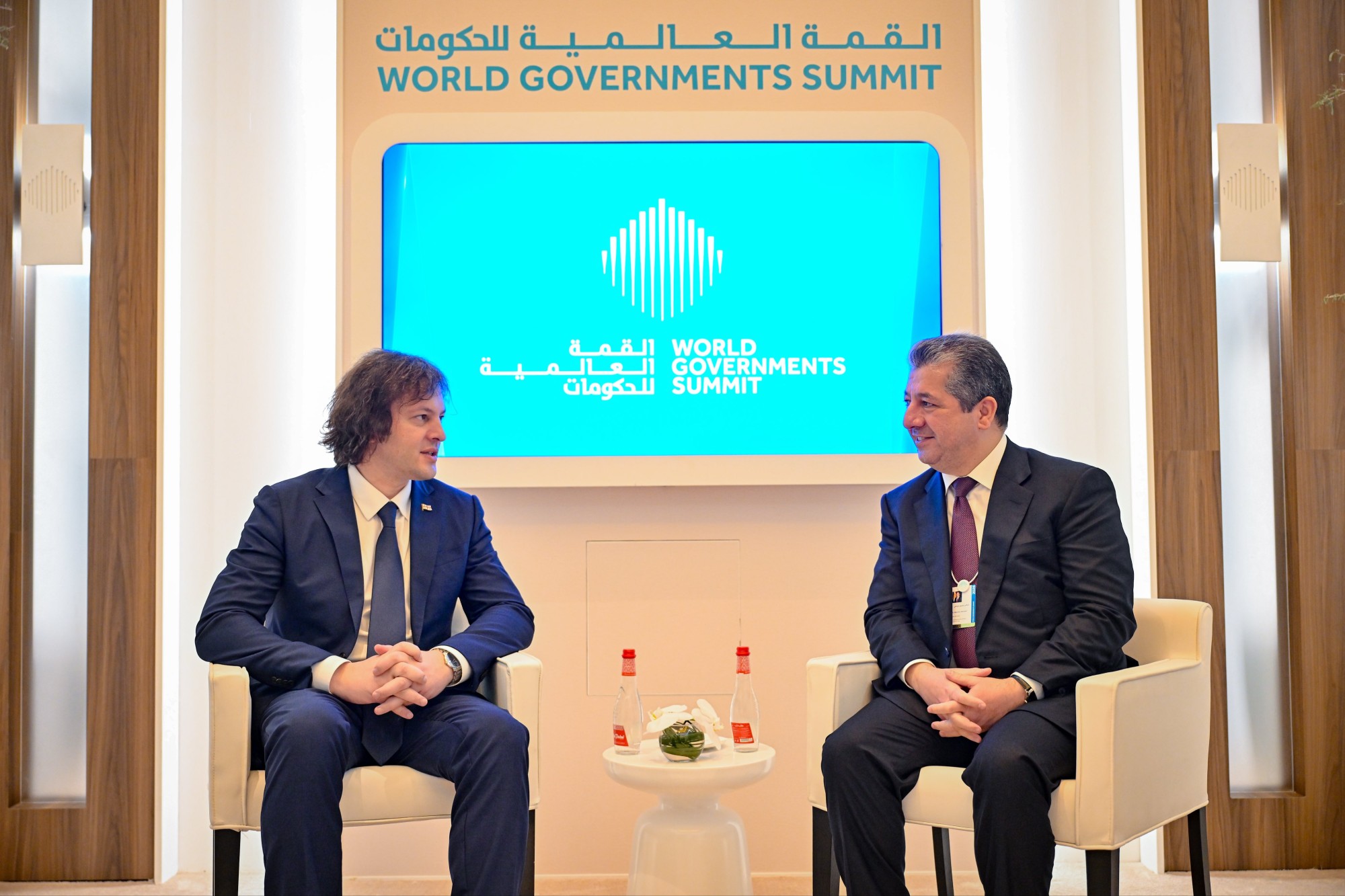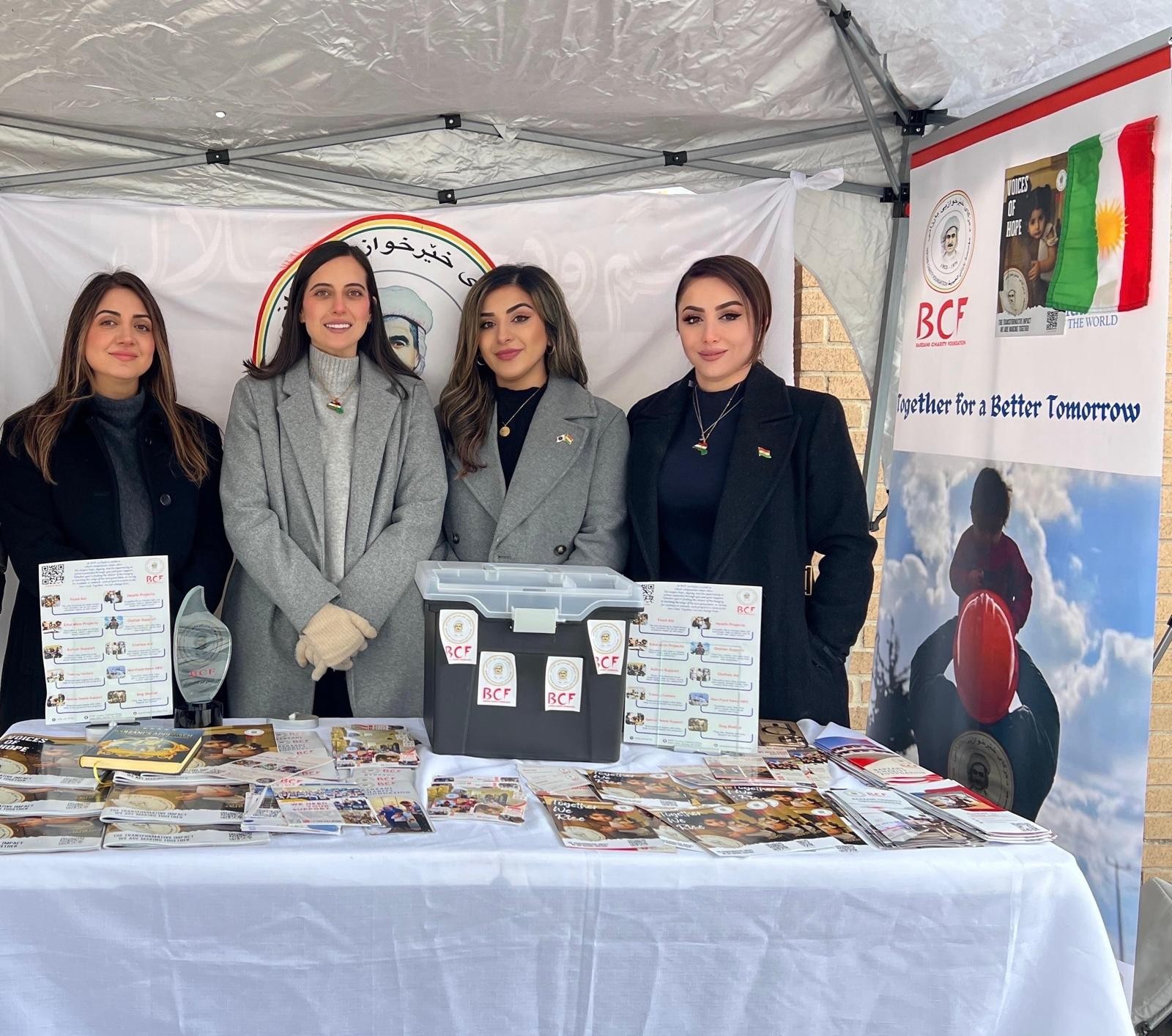Iraqi Finance Minister Taif Sami Mohammed has refused to use the Kurdistan Regional Government’s (KRG) MyAccount digital banking initiative to distribute salaries through private banks, saying that the 1.2 million KRG employees will not be paid until they use the public Rafidain Bank or Rasheed Bank.
This is despite the clarification issued by the Federal Supreme Court of Iraq on March 17 stating that salaries can be paid in cash until the localization process is finished, and the fact that the MyAccount project only uses banks approved by the Central Bank of Iraq (CBI).
We have aligned with Baghdad to:
— Masrour Barzani (@masrourbarzani) October 19, 2023
- Increase financial inclusion
- Promote banking products and services
- Strengthen AML regime
In today's meeting with @cbiraq Governor Ali Al-Alaq, I thanked him and PM @mohamedshia for backing KRG’s initiatives, including #MyAccount. pic.twitter.com/y3QW9kMq24
“The MyAccount project is an essential component of the digital ecosystem that was launched prior to tensions with Baghdad,” Hiwa Afandi, Deputy Minister and Head of the KRG Department of Information Technology – the department responsible for the technology behind the MyAccount project – told Kurdistan Chronicle. “It is part of our digital transformation journey.”
As part of its mission to shift the Kurdistan Region towards a cashless society, the KRG started digitizing the payroll process for its 1.2 million public sector employees in September 2023 by helping government workers to register with local banks.
As of early 2024, the list of banks participating in the program included Cihan Bank, RT Bank, National Bank of Iraq, BBAC Bank, and Iraqi Islamic Bank, all of which are part of the Central Bank of Iraq’s Tawteen program, which includes 43 banks in total, including Rafidain Bank and Rasheed Bank.
Over 240,000 bank accounts have been validated and over 135,000 people have received their bank cards since the program’s launch, KRG officials report. The goal is to eventually register around 1 million people.
The #MyAccount project by the KRG sets a global benchmark for financial inclusion acceleration, deserving of the highest accolades for its effectiveness. A golden initiative, it operates in perfect harmony with CBI and AML regulations, showcasing exemplary compliance and…
— Hiwa Afandi (@HiwaAfandi) March 13, 2024
Afandi underlined that the project was set up to accelerate enrollment in the banking system.
“In Iraq, the proportion of the population with bank accounts stands at less than 20%, a figure that is markedly low considering the country’s Gross National Income, where over 70% bank account penetration would be expected,” he said. “To bridge this significant gap without a concerted acceleration strategy could take between 10 to 15 years.”
The KRG’s MyAccount project aims to utilize advanced digital technologies to effectively and efficiently accelerate the bank account creation for government employees by preparing their data – including their identity documents, personal picture, and signature – to fully comply with the CBI’s Know Your Client (KYC) requirements, and by granting them the option to choose from among participating banks, which are in line with Iraq’s Tawteen program.
A courageous project
Afandi emphasized that low financial inclusion in Iraq is a major barrier for individuals, government entities, and businesses looking to unlock the huge potential of the digital economy and digital transformation.
“KRG Prime Minister Masrour Barzani’s efforts to challenge the status quo and address a problem that has persisted for decades are not just bold, but truly commendable,” Afandi said. “Such initiative warrants our utmost support and acknowledgment.”
He added that the MyAccount project has helped to incentivize people to create accounts.
“The KYC compliance requirements set by the CBI demand a substantial volume of data and documents from individuals, a process many find daunting due to the absence of immediate, tangible benefits from their bank accounts,” Afandi explained.
“Concurrently, businesses hesitate to offer services that necessitate a bank account, as a significant portion of the population remains unbanked. This creates a classic chicken-and-egg dilemma – without intervention to ensure that people are brought into the banking fold, this cycle may persist for another decade. It’s essential for a mediator to bridge this gap, facilitating a banking ecosystem that works for individuals and businesses alike.”
CBI approval
Moreover, the MyAccount website notes that the “program is endorsed by and implemented in close coordination with the Central Bank of Iraq.”
KRG Cabinet: #MyAccount enjoys @cbiraq approval. It includes licensed banks from Iraq's domiciliation (Tawteen) program and will continue until over 1 million KRG beneficiaries register by year-end.
— Aziz Ahmad (@azizkahmad) March 13, 2024
'If Iraqi beneficiaries nationwide can freely pick their bank, so should ours.'
“We have full confidence and support from the Central Bank of Iraq and all the banks that are in the program have direct approval from CBI,” Deputy Chief of Staff to Prime Minister Masrour Barzani, Aziz Ahmad, told Kurdistan Chronicle.
“The participating banks in the MyAccount project are the same banks in the Iraqi CBI Tawteen program, and we are on track to deliver 1 million accounts by the end of the year.”
U.S. Ambassador to Iraq Alina L. Romanowski also recently wrote that the United States has supported the CBI as it increases the number of Iraq’s commercial correspondent banking relationships.
Afandi stated that the CBI holds MyAccount’s operations in high regard. “We not only adhere to the CBI’s regulations with full compliance, but we also strictly observe anti-money laundering policies. This is because the CBI is fully aware of every individual who opens a bank account and maintains visibility over all such accounts.”
Moreover, the MyAccount initiative welcomes participation from other financial institutions. “The prerequisites for banks to join are clear-cut: first, they must hold certification from the CBI. We maintain strict adherence to this policy – only banks with proper CBI licensing can integrate with the MyAccount system.”
He emphasized that participating banks are required to commit to offering a baseline of financial services, which includes ensuring the accessibility of ATMs in proximity to their clientele.
Localizing salaries
On February 21, the Federal Supreme Court of Iraq called on Baghdad and Erbil to localize the salaries of government employees through federal banks.
However, Kurdish sources indicate that it will take a lot of time to open accounts for over 1 million people with the two government banks, Rafidain Bank or Rasheed Bank, as the CBI does not permit the opening of a bank account without the physical presence of the individual, unless they get a waiver from Baghdad.
Additionally, neither of these two banks maintain offices or have ATMs in the Kurdistan Region, unlike other banks already approved by the CBI.
Moreover, both Rafidain Bank and Rasheed Bank are expected to be restructured into private banks in the future.
“These banks do not even have a proper presence in Kurdistan, so we don’t even know how people are going to get access to their money. They don’t even have ATM networks here,” Afandi explained.
Freedom to choose
He pointed out that it is neither reasonable nor justifiable to limit people to only two banking options when there are additional banks in the Kurdistan Region that are certified by the CBI and adhere to standard international banking protocols.
“People ought to have the liberty to select any bank that commits to offering at least a baseline of services as part of the MyAccount project,” Afandi stated.
Additionally, he said civil servants should be given the chance “to have an international bank account number with the proper banking services.”
Prime Minister @masrourbarzani met today with the senior management from the Bank of Baghdad and @JKB_Bank.
— Aziz Ahmad (@azizkahmad) March 17, 2024
He outlined KRG’s plans to accelerate financial inclusion and digital payments, in accordance with regulation by the Central Bank of Iraq. #هەژماری_من pic.twitter.com/2O3qhLUafz
On March 18, Prime Minister Barzani received a delegation from Jordan Kuwait Bank and Bank of Baghdad, where they also discussed the MyAccount project.
Prime Minister Barzani also underlined how the KRG is planning to cooperate with the Iraqi federal authorities, including Iraqi Prime Minister Mohammed Shia' Al Sudani and CBI Governor Ali Mohsen Al Allaq, to align these initiatives with national guidelines.
During a productive meeting, PM @masrourbarzani and @UnderSecTFI Brian Nelson discussed the ways in which bilateral cooperation can be strengthened, focusing on supporting KRG's reform agenda in finances, banking sector, My Account program, and digitalization of public services. pic.twitter.com/AXCSaxf4xc
— Safeen Dizayee (@SafeenDizayee) March 1, 2024
Al Monitor reported that during Prime Minister Barzani’s visit to Washington, D.C., last month the MyAccount project also won praise from the U.S. Treasury’s Undersecretary for Terrorism and Financial Intelligence Brian Nelson, who reportedly said the KRG’s push for more transparency and digital payments was what Washington has been telling Baghdad to do “for years.”
“We have developed a highly modern platform that is propelling people towards embracing the banking system via technology. Such progress would be unattainable without the aid of cutting-edge technologies. This initiative ought to be viewed as a ‘golden project,’ one that deserves support rather than opposition,” Afandi further remarked.
Afandi emphasized that a successful government digital transformation hinges on the financial inclusion of its citizens. He also noted that they have received directives from Prime Minister Barzani to expedite the progress of the project.

